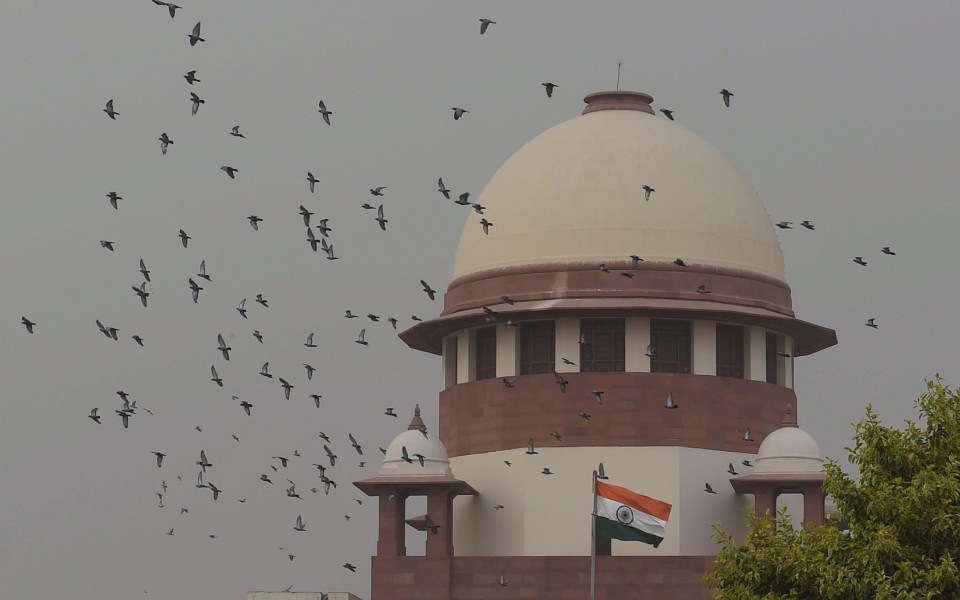New Delhi, October 18, 2024: The Supreme Court on Friday ruled that child betrothals—a tactic often used to evade the Prohibition of Child Marriage Act (PCMA)—violate fundamental rights, including freedom of choice, autonomy, and the right to childhood.
A three-judge Bench led by Chief Justice of India D.Y. Chandrachud, along with Justices J.B. Pardiwala and Manoj Misra, emphasized that the anti-child marriage law was unclear on child betrothals. The Court urged Parliament to outlaw the practice and categorize children whose marriages are arranged as “minors in need of care and protection” under the Juvenile Justice Act.
The judgment noted that despite international frameworks like the 1977 Convention on the Elimination of All Forms of Discrimination against Women (CEDAW), India has not fully addressed the issue of child betrothals. Under the PCMA, girls under 18 and boys below 21 are considered children, and child marriage is both a crime and a social evil.
Chief Justice Chandrachud pointed out that confusion persists regarding the intersection of personal laws and the PCMA. The Court acknowledged that the government had submitted a “note” suggesting that the PCMA should take precedence over personal laws, citing conflicting High Court judgments. However, the note was not backed by formal documentation, and the matter remains unresolved, with an Amendment Bill introduced in December 2021 still pending in Parliament.
The Court also broke new ground by addressing the impact of child marriage on boys. The judgment highlighted how patriarchal expectations, misinformation, and peer pressure push boys into committing violence against their child brides. “While girls are disproportionately affected, the right to childhood belongs to all genders,” Chief Justice Chandrachud observed.
“The intent of POCSO is to protect children from sexual harm, while child marriage institutionalizes sexual abuse by subjecting minor girls to exploitation,” the CJI stated. He further noted that child marriage reduces children to objects, imposing burdens such as compulsory heterosexuality and reproductive expectations, which deny them the freedom to explore their sexuality and personal choices.
The Court issued several guidelines, including:
• Introducing culturally appropriate sexuality education in schools.
• Launching a ‘Child Marriage Free Village’ campaign, similar to the ‘Open Defecation Free Village’ initiative, with the involvement of community leaders.
• Establishing an online portal under the Home Ministry for reporting child marriages.
• Creating a compensation scheme under the Ministry of Women and Child Development for girls who opt out of child marriages.
• Allocating an annual budget to prevent child marriages and support those affected by the practice.
The verdict was delivered in response to petitions by NGOs, including the Society for Enlightenment and Voluntary Action, which raised concerns about the persistence of child marriages despite nearly two decades of the PCMA. The Court warned that child marriage poses a direct threat to laws like the Protection of Children from Sexual Offences (POCSO) Act.
Let the Truth be known. If you read VB and like VB, please be a VB Supporter and Help us deliver the Truth to one and all.
Panaji (PTI): As part of a crackdown against tourist establishments violating laws and safety norms in the aftermath of the Arpora fire tragedy, Goa authorities on Saturday sealed a renowned club at Vagator and revoked the fire department NOC of another club.
Cafe CO2 Goa, located on a cliff overlooking the Arabian Sea at Vagator beach in North Goa, was sealed. The move came two days after Goya Club, also in Vagator, was shut down for alleged violations of rules.
Elsewhere, campaigning for local body polls, AAP leader Arvind Kejriwal said the fire incident at Birch by Romeo Lane nightclub at Arpora, which claimed 25 lives on December 6, happened because the BJP government in the state was corrupt.
An inspection of Cafe CO2 Goa by a state government-appointed team revealed that the establishment, with a seating capacity of 250, did not possess a no-objection certificate (NOC) of the Fire and Emergency Services Department. The club, which sits atop Ozrant Cliff, also did not have structural stability, the team found.
The Fire and Emergency Services on Saturday also revoked the NOC issued to Diaz Pool Club and Bar at Anjuna as the fire extinguishers installed in the establishment were found to be inadequate, said divisional fire officer Shripad Gawas.
A notice was issued to Nitin Wadhwa, the partner of the club, he said in the order.
Campaigning at Chimbel village near Panaji in support of his party's Zilla Panchayat election candidate, Aam Aadmi Party leader Kejriwal said the nightclub fire at Arpora happened because of the "corruption of the Pramod Sawant-led state government."
"Why this fire incident happened? I read in the newspapers that the nightclub had no occupancy certificate, no building licence, no excise licence, no construction licence or trade licence. The entire club was illegal but still it was going on," he said.
"How could it go on? Couldn't Pramod Sawant or anyone else see it? I was told that hafta (bribe) was being paid," the former Delhi chief minister said.
A person can not work without bribing officials in the coastal state, Kejriwal said, alleging that officers, MLAs and even ministers are accepting bribes.





